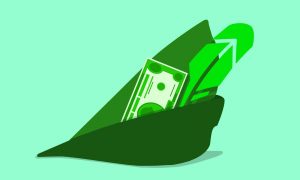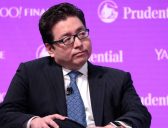As retail investors pile on to the GameStop stock-buying frenzy, Robinhood is making tons of headlines. But even before everyday traders fueled massive gains for stocks popular with the Reddit crowd, investors couldn’t get enough of the online brokerage app. Robinhood gained more than 3 million users in the first four months of 2020 alone, half of whom were first-time investors.
It’s clear why the platform is enticing: Active investors can execute their trades at rapid-fire speed with no fees. Users get a free stock just for joining and getting their friends to do the same, and they can see the most commonly-held stocks of their fellow investors. The rise of the app goes hand-in-hand with growing interest in the stock market from young people on apps like TikTok (for better or worse).
(On Thursday Robinhood curtailed customers’ ability to trade GameStop and other stocks, another potential risk of using the app, one which could cost users additional money — of save them from themselves.)
But even a company offering “free trading” needs to make money somehow.
Here’s how Robinhood does it:
The bid-ask spread
With no-fee investing, you — as the name entails — don’t pay fees on a trade. But you may be paying something called the bid-ask spread.
When you place a market order on an app like Robinhood, you’re telling a broker to get the best price you can right this second. But buy and sell orders don’t always come into the market at the same moment, so companies called “market makers” essentially sell the convenience of getting your order executed immediately, says James Angel, a finance professor at Georgetown University. Those market makers make a profit off of how much someone is willing to sell a share for, and how much someone else is willing to buy it for — the difference is called the bid-ask spread, and the individual investor is the one who pays it.
The spread isn’t a lot. For most trades, it’s a penny or two per stock, Angel says. (For ultra-high priced stocks it gets wider, but in percentage terms, it’s comparable to the normal priced stocks, he adds.)
Robinhood is paid by the market maker for its customers’ orders — a common practice among retail brokers. That’s one way Robinhood makes money, according to its a page on its own site, which a Robinhood spokesperson pointed Money to when asked for comment.
The question is: are customers now getting the best price, if a broker has an interest in selling an order to a market maker that will pay the most? Robinhood did settle claims from the Financial Industry Regulatory Authority in 2019 that it wasn’t receiving the best prices for orders (payments for orders are legal, but the SEC requires companies to regularly review how they’re being executed). But at the time, Robinhood told The Wall Street Journal “the facts on which the settlement is based do not reflect our practices or procedures today,” and says on its site that orders are routed to the market maker that’s most likely to give customers the best execution, based on historical performance. It has also since hired a former SEC commissioner as its chief legal officer.
Angel says it’s likely investors are getting just as good execution from Robinhood as they are elsewhere. Just remember that “free” investing isn’t completely free.
Interest on your cash
Whether you got spooked and pulled money out of the market, received dividends that haven’t been reinvested or just haven’t gotten around to investing money you transferred to a brokerage account, it’s possible you have significant cash sitting in the account. As of the end of 2020, there was over $1.5 trillion in brokerage sweep accounts, estimates Crane Data, a money market and mutual fund information company.
Robinhood has a cash management service where cash is “swept” into a network of banks and earns 0.30% annual percentage yield (APY). (This is higher than some other brokerages and traditional banks, which tend to offer around 0.05% APY, but lower than if you shop around. Wealthfront offers 0.35% APY and Betterment, 0.40%.)
But Robinhood is making money off of that cash via fees from program banks, as well as from interchange fees when customers use the optional debit card that comes with the service, according to the company’s site. You don’t have to opt into the cash management service, but Robinhood also generates income off of your uninvested cash that doesn’t go to those program banks by depositing it in interest-bearing bank accounts. Robinhood pockets the interest.
These are common practices of brokerages and banks. But it’s important to remember that the company is still making money off of your cash.
Robinhood Gold
Yes, investing with no bells and whistles comes without fees on Robinhood — but you do have to pay if you want more options.
With Robinhood Gold, which starts at $5 per month, customers can participate in margin trading. This allows you to borrow money from Robinhood so that you’re trading more than just your own money — it gives you extra buying power and the potential for bigger returns. Keep in mind that margin trading can be very risky — the potential of huge returns comes with the risk of supersized losses. Robinhood has faced criticism and even legal action for “gamifying,” investing, and marketing aggressive trading tactics, like trading on margin, without regard for the best interests of its customers, often inexperienced investors.
Robinhood Gold also offers additional market data and research, and allows customers to make instant transfers from their bank accounts to brokerage accounts up to the value of their portfolio starting at $5,000 rather than the $1,000 that comes with a standard account. But again, you pay for what you get.
The post Is Robinhood Really Free? appeared first on Money and is written by Mallika Mitra
Original source: Money






